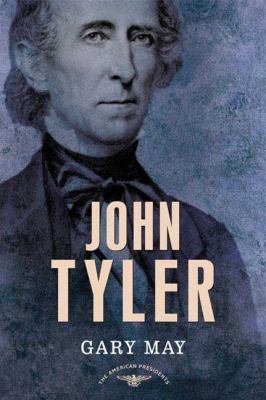John Tyler
John Tyler by Gary May
Tier 4
There is no more accidental president than John Tyler. There have been other instances of Vice Presidents assuming the role of President, but Tyler was the first and, as such, the most surprising. As I mentioned in my previous post, the rules for succession weren’t agreed upon when Harrison died. It was such a foreign idea that people considered the Vice President immaterial.
Tyler was likely only selected for the role to provide geographical balance to the ticket – Harrison resided in the northern frontier states, Tyler lived in Virginia. As a slaveholder, he assured voters that any rumors of Harrison’s abolitionist tendencies were false, but aside from that, he presented little.
But those are the odd twists of fate on which the nation turns. An afterthought became President.
I don’t have much nice to say about Tyler. I don’t like him. I think he was a bad person and an indifferent president. But our nation’s history is littered with these men, and it would be a dereliction of my self-appointed duty to gloss over people like Tyler.
Given the lack of deliberation that went into nominating Tyler as VP, no one seemed to have much of a handle on what he’d do as President. Henry Clay, the nominal leader of the Whig Party, assumed he’d be able to control the White House from the Senate. At this point in the nation’s history, Congress was the preeminent of the three branches of power. Tyler was a Whig of far less standing than Clay and even supported Clay’s bid to become the Presidential nominee over Harrison. But Clay was wrong.
Tyler proved to be a strident advocate of executive authority. He believed it should be the President, not Congress, who drives the direction of the nation. He contended that Congress should draft legislation and pass it on to the President, who could use his veto to direct policy. As one could imagine, this was very unpopular in Congress, leading to the first-ever President to have his veto overridden by Congress.
In general, Tyler seemed to annoy seemingly everyone he encountered. Upon becoming President, he decided to keep on Harrison’s Cabinet in a display of continuity. This was a poor decision, as many members of this Cabinet openly despised Tyler.
After another argument about a national bank (seriously, it’s like all anyone talked about from 1820 – 1850), with Tyler repeatedly vetoing Clay’s proposed bills to establish one, his Cabinet resigned en masse. Next, his own party expelled him and refused to allocate money desperately needed to repair the shambolic White House. So, as you can see, he was a really popular guy.
John Tyler was a strict constructionist. This essentially means that he believed that the Constitution should be strictly followed. More directly, in the 1840s, this translated to him supporting “state's rights” (slavery). He wanted to expand slavery to newly added western states, take more land in the west, and annex the newly formed independent nation of Texas. It all circles back to slavery with these people. Tyler was a virulent racist who wanted to define the nation by that racism.
There was little hope for him in terms of re-election. The Whigs had expelled him, and the Democratic Party had little love for him. He threatened to run as a third-party candidate, which would’ve cannibalized Democratic votes, to gain congressional support for the annexation of Texas. He received this, and after some maneuvering, Texas was offered and accepted statehood.
For most, his legacy is Texas and being the first Vice President to assume the presidency. But not for me. Because a president’s life does not end when he leaves office, and there might be no more detestable post-presidency than that of John Tyler.
As the Civil War neared, Tyler was named presiding officer of the Washington Peace Conference – a last-ditch effort to avoid war. Despite being a leader of this Conference, he opposed its resolution, fearing it did not do enough to protect and ensure the continuance of slavery. He then became a vocal advocate of secession, even going so far as to claim it wouldn’t trigger a war. The stupidity of this claim is staggering.
After Fort Sumter and Lincoln’s response, Tyler ensured that Virginia joined the newly formed Confederacy. Next, he was elected to the Provisional Confederate Congress and later the Confederate House of Representatives.
Unfortunately, he died in 1862. I don’t say this because I mourn his death, but rather because I wish he had lived long enough to see the Confederacy in ashes. Jefferson Davis, the cowardly President of the Confederacy, gave him a grand funeral and buried him under the Confederate flag.
This is as good a time as any to grant you all fair warning for what is to come. The Civil War is the primary incident in US history, and I am unequivocal in my hatred of the racist failure that was The Confederate States of America. If you are one of those people who love the Confederacy, this is not the series for you, and I would suggest you take a hard look at why you venerate such a pathetic and hateful failed state.
Sorry if that got a little serious there. This biography wasn’t very good. It’s part of a series of biographies on the American Presidents. I used this series when I couldn’t find a different biography, and I think it’s a good idea in principle. They’re short books that manage to convey basic facts about a president but do not dive deep enough for my taste.
